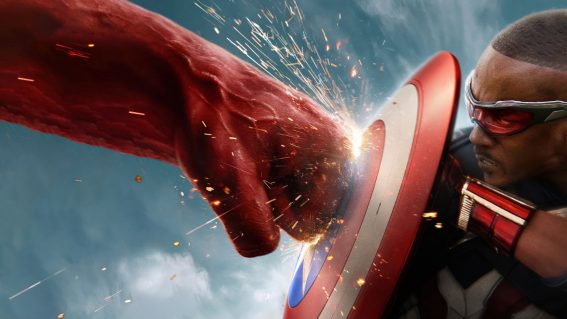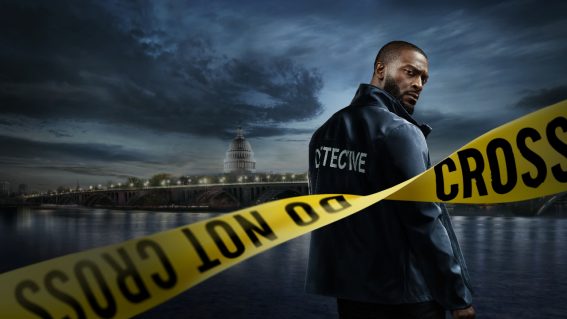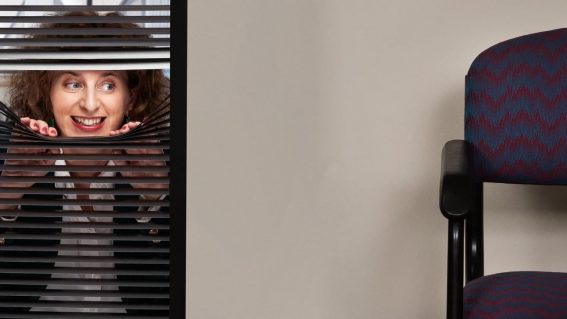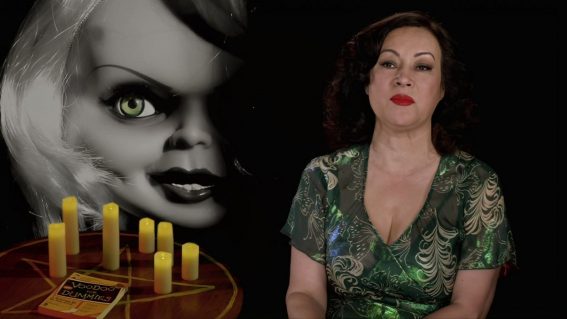‘Straight Outta Compton’: Did They Forget About (Women-Abusing) Dre?
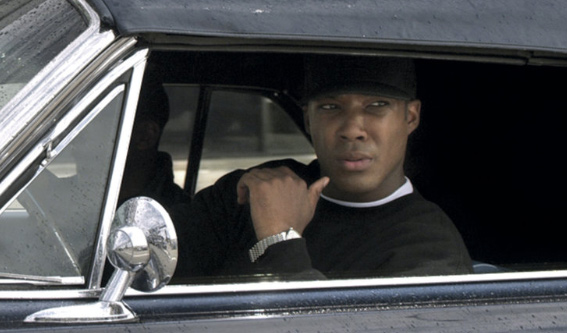
Straight Outta Compton is not only one of the best films I’ve seen this year, it’s one of the best biopics I’ve seen in years. It’s politically relevant, powered by superb performances and led by a narrative approach that slices through pitfalls of many lesser true-story biopics. It also does a squeaky-clean job scrubbing Movie Ice Cube and Movie Dr. Dre of most flaws pertaining to Real Ice Cube and Real Dr. Dre – both of whom co-produced the film. That last part bugs me.
The main stink that has been pointed out is of Real Dr. Dre’s dubious history of physical abuse against women. Dre has acknowledge these accusations in an apology published in the New York Times; I’ll leave it to you to judge whether he was genuine or pulled a PR stunt for his film.
But the main question still stands: was it the film’s duty to show us this side of him?
Well, yes and no.
Here’s the “yes”: the film should not contradict, or be overtly contrary to, the reality of the person(s). This is a responsibility all ‘based on a true story’ features should abide by, and is a mistake James Cameron made in Titanic where he made a real-life heroic officer look like a villainous jerk-wad. (Cameron feels appropriately awful about it.)
Straight Outta Compton doesn’t simply ignore Dre’s abusive history, it paints his younger self as a flawless saint. In the aforementioned apology, Real Dre states “Twenty-five years ago I was a young man drinking too much and in over my head with no real structure in my life… I’m doing everything I can so I never resemble that man again.” Problem is, Movie Dre doesn’t resemble this man at all.
It’s odd, given how the film doesn’t shy away from depicting the other NWA members’ attitudes towards women during that time. Movie Ice Cube, Movie Easy-E, Movie Yella and Movie MC Ren would proudly “ditch a bitch”, but that impression is sorely missing in Movie Dre.
Had the film simply hinted at past Real Dre’s drunken and aggressive tendencies, it would have done a lot to cover its ass. But it doesn’t even do that, creating a Movie Dre that wouldn’t house the demons in Real Dre’s closet. This is where the uncomfortable incongruity lies, and the film is at fault for that.
But here’s the “no”: to include scenes of Movie Dre in acts of abuse against women would have detracted from the core story and it’s three big themes: the social impact of art, art vs. success, and corruption bred from the pursuit of success.
How would this have added to the story? What theme would that be in service of? The only fitting theme would be that of success and corruption, and Movie Dr. Dre was already swamped with the shit going down at Death Row.
The film could have shoehorned and simplified a five minute scenario that showed Dre in an abusive act, much like the James Brown biopic Get On Up did. But just like Get On Up, it would have left audiences wondering why this characteristic suddenly popped up and why the film didn’t follow through with some sort of explanation and/or consequence.
In addition, the film needed to keep us on these artists’ side and have us root for them all the way. If we saw Movie Dre committing a misogynistic act of abuse, this would have greatly complicated things. It would probably take a separate movie to examine this complex issue and reel us back to being on his side again, if that was even possible.
Abuse against women is a fucking atrocious act and one that should not be taken lightly. Straight Outta Compton did not take the Dr. Dre issue lightly because it chose to omit the issue entirely. I felt this was the right move. However, by characterising young movie Dre as a flawless being is deceitful, especially given the enormity of his previous actions. The film had a responsibility to align this character to his real counterpart – one that it failed to accomplish.
The issue should not be ignored either. I wouldn’t demonise Real Dre today because of how little I know of him, but I sure as hell demonise his past actions. The film simply wasn’t the right outlet to express it.
But that shouldn’t stop you talking about the horror of abuse against women, even if you use this movie as a springboard. Be upset about it, be loud about it, share articles about it. Only good can come from raising awareness.

